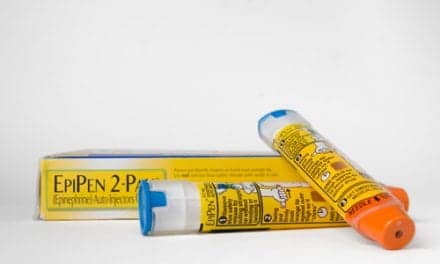If you suspect a food allergy, don’t self-diagnose or use at-home test kits. Food allergies are much too serious to assess without an expert, reports the Washington Post.
Your best bet is to work with a board-certified allergist, who will perform skin-prick tests and IgE blood tests to narrow down a diagnosis. (IgE, or immunoglobulin E, is a type of antibody produced by the immune system. More IgE is produced during an allergic reaction.) But keep in mind that even these tests are imperfect, and may falsely show you are allergic to something.
“Both skin and blood IgE tests have high rates of false positive results and, because of this, they should never be used as ‘screening tests,’ ” says David Stukus, an allergist and associate professor in the division of Allergy and Immunology at Nationwide Children’s Hospital in Ohio. “Both skin-prick and blood test results must be interpreted in the proper clinical context and with a full understanding of what symptoms occur when that food is ingested. Both are reliable when used appropriately and interpreted in the proper context.”










